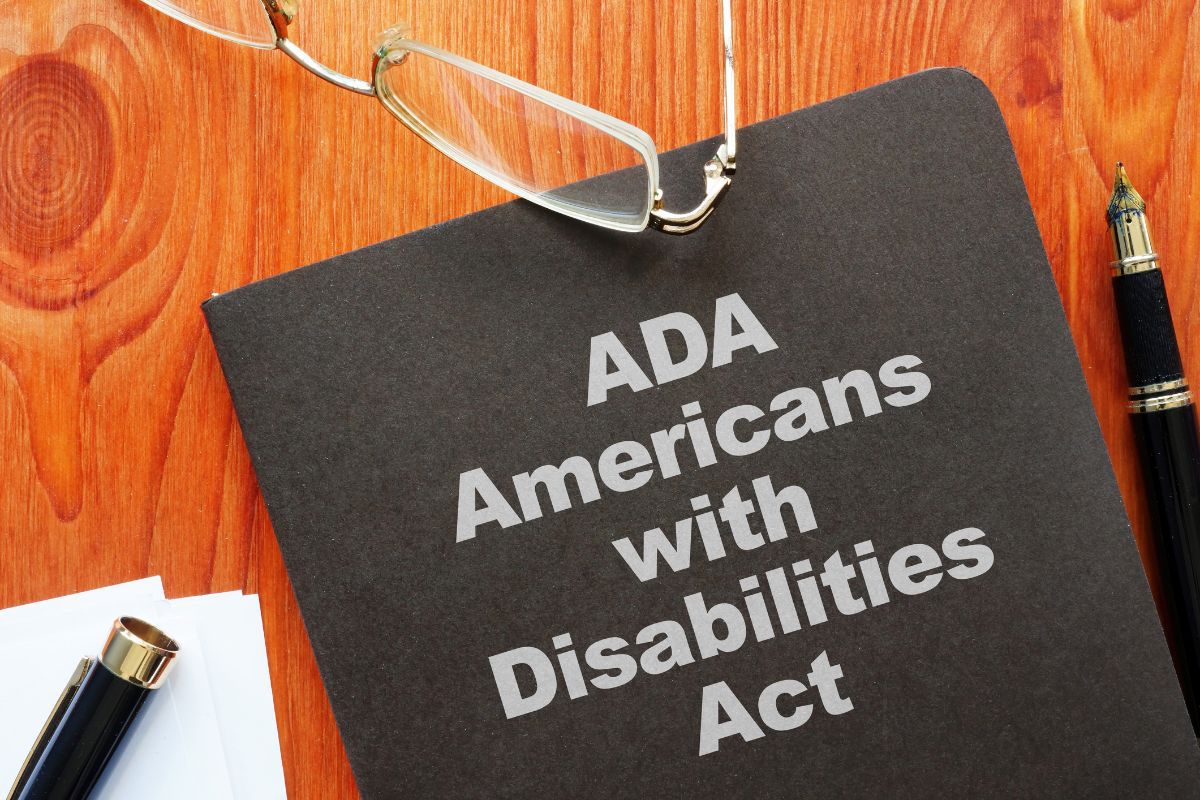Practicing Lawyers Must Consider The Americans With Disability Act

The websites of lawyers, like any other business enterprise, are subject to the requirements and mandates of the Americans with Disabilities Act (ADA). Attorneys must understand how to make their websites accessible to people with disabilities and prepare their websites for potential ADA scrutiny while avoiding wasting money chasing the illusion of “ADA compliance.”
When first enacted thirty years ago, not surprisingly, the Americans with Disabilities Act (ADA) did not include the term “website” as a form of Public Accommodation for Title III. It applies to physical buildings. The ADA, 42 U.S.C. § 12101, originally became effective on July 26, 1990, predating the mainstream commercial use of the internet. Section 508, however, includes government websites and any business tied to the federal government through its services or product sales.
Attorneys must voluntarily accommodate people with disabilities on their website. Why? It is simply a good business idea and, more importantly, it is the right thing for them to do. There are cost-effective actions that may make a website accessible and compelling to people with disabilities, including:
- People with low vision and blindness
- Hearing loss and deafness
- Learning disabilities
- Cognitive limitations
- Limitations to movement
- Speech disabilities
- Photosensitivity
- Any combination of these disabilities.
The standards for website accessibility are still evolving. An international community working to develop web standards — does provide suggestions in the form of Web Content Accessibility Guidelines (“WCAG”). The WCAG provides the following four principles for website accessibility, with each principle containing specific guidelines. The principles are as follows:
WCAG Principle 1: Perceivable: The information and user interface components of an attorney’s website must be presentable to users so that they may perceive the website’s content. Visitors to a website should be able to easily see or hear content that is consumable in different assistive devices without losing meaning.
WCAG Principle 2: Operable: The user interface components and navigation must be operable so that all content is accessible using a keyboard. They should allow all users sufficient time to read or otherwise use the content. This and any content must be easy to find on the website.
WCAG Principle 3: Understandable: The information and operation of the site’s user interface must be understandable so that the site’s content appears in a predictable and standard way that is intuitive for readers, and readable and understandable for assistive devices.
WCAG Principle 4: Robust: Content must be robust enough that it can be interpreted reliably by a wide variety of user-agents, including assistive technologies. Further, the presentation of a law firm’s website must be adaptable to be compatible with new devices, browsers, and other assistive devices.
In general, a law firm’s website should be:
- Readable by screen readers that assist the visually impaired.
- Navigable in multiple ways, including using a keyboard without a mouse.
- Free of flashing colors, rapidly moving images or animations, and automatically playing video or audio content that cannot be stopped.
- Using the latest markup standards.
As a practice matter, it may be a wise course of action to abide by all four WCAG principles, as well as the above four sound web practices. While having an “ADA compliant” law firm website is technically impossible since the standards indicating ADA compliant are undefined, attorneys nonetheless must provide an accessible and meaningful experience to people with disabilities. The challenge for attorneys is providing accessibility while minimizing costs without compromising the general effectiveness of their websites.
Like traditional law schools, CDTA’s curriculum is designed to teach students the substantive law of core subject areas. Unlike traditional law schools, CDTA emphasizes training and developing students to be capable and competent advocates in any courtroom. The California Desert Trial Academy (CDTA) is a 21st Century law school that moves students toward a successful legal career on the first day of class. We believe that practical experience in tandem with legal knowledge is the best road to a successful, rewarding, and prosperous legal career. Call us today at (760) 342-0900 or find out more online here.


